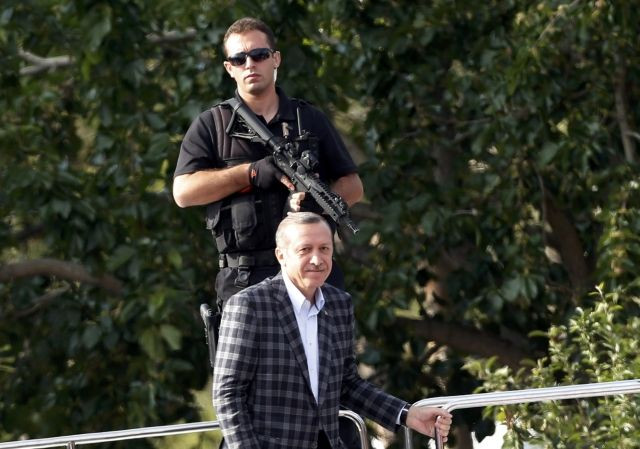Turkey’s Prime Minister Erdogan Disparages Protesters As Vandals, Says His Patience Has Limit

Turkish Prime Minister Recep Tayyip Erdogan launched a fierce verbal attack on anti-government protesters on Sunday, saying his patience was wearing thin, as protests continued for a tenth day.
Erdogan dismissed his opponents as “capulcu,” the Turkish word for looters or vandals, during a series of belligerent addresses in the capital, Ankara. Riot police sprayed teargas and water cannons to disperse thousands of protesters gathered in Istanbul’s central Taksim Square and Ankara’s Kizilay Square on Sunday.
“We showed patience but our patience has its limits,” Erdogan said, addressing thousands of supporters who were gathered to cheer his arrival at Ankara airport on Sunday, AP reported. “I call on my brothers who are duped: please put an end to your actions. Look, we have come to these days with patience. As a prime minister I say: enough!”
In a separate speech, he warned: “Otherwise I will have to speak the language you understand. Patience has an end. You cannot show Turkey as a country where there is an environment of terror.”
Erdogan blamed a “high-interest-rate lobby” for causing volatility in financial markets, as Istanbul’s main share index lost around 15 percent over last week. He vowed to “choke” financial market speculators who he said have been exploiting “the sweat of my people for years.”
What began as a small, peaceful protest to stop the demolition of Gezi Park, one of Istanbul’s remaining green spaces, quickly grew into a fully blown anti-government protest, the biggest since Erdogan assumed office 10 years ago. As many as 78 cities across the country have witnessed anti-government protests since May 31.
Under Erdogan and his ruling Justice and Development Party, which won three elections in a row, Turkey has seen unprecedented economic growth. Erdogan is widely believed to be the most powerful and popular politician the country has seen in generations, and enjoys tremendous support from a large section of the Turkish population.
He has been a close U.S. ally, as well as a key player in efforts to end the Syrian crisis. His Islamist-rooted governing party lifted restrictions on public expression of religion while the government made significant progress in ending a 30-year-old Kurdish separatist insurgency.
The protesters do not have any known political party affiliations, and comprise of urban, young, educated and secular Turks who have been accusing Erdogan of authoritative conservatism. Although the protesters have radically different views, they are disillusioned with the prime minister’s neo-Islamist social agenda and his uncompromising governing style, and are united in seeking his resignation and to restore civil liberties.
His critics say that he has grown increasingly intolerant to dissent, an accusation against which he reacted in a televised address on June 2 saying: “If you are the kind of person who can call someone who serves their people a dictator, then I have no words for you.”
Erdogan, whose term ends next year, has repeatedly announced plans to restructure the nation’s political system and transform it into a more centralized presidential system, with himself as head of state.
© Copyright IBTimes 2025. All rights reserved.





















